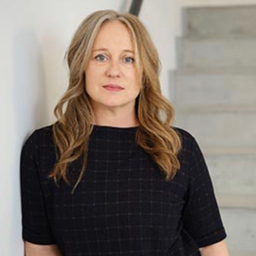Dr. Nicole Paland
Angestellt, Head of Product Development, Minerva Biolabs GmbH
Berlin, Deutschland
Werdegang
Berufserfahrung von Nicole Paland
Bis heute 1 Jahr und 8 Monate, seit Sep. 2022
Head of Product Development
Minerva Biolabs GmbH
Bis heute 3 Jahre und 2 Monate, seit März 2021
Project Leader Product Development
Minerva Biolabs GmbH
Bis heute 5 Jahre und 9 Monate, seit Aug. 2018
Scientific Writer
EasyBioWri
7 Monate, Juli 2020 - Jan. 2021
Medical Writer
Medical Cannabis Research Center Rambam Health Care Center
1 Jahr und 9 Monate, Sep. 2016 - Mai 2018
Senior Researcher
University of Haifa, Prof. Sarit Larisch
Role of mutual regulation between ARTS and p53 in promoting apoptosis and cancer prevention - Planning and implementing projects - Supervision of students
1 Jahr und 10 Monate, Nov. 2014 - Aug. 2016
Senior Researcher
Technion, Prof. Simone Engelender
Investigated the role of Gaucher's Disease as a risk factor for the development of idiopathic Parkinson's Disease • Established the method of CRISPR and Real Time PCR in the lab
3 Jahre, Sep. 2011 - Aug. 2014
Senior Postdoc
Technion, Lipid Research Group Prof. Michael Aviram/Prof. Bianca Fuhrman
Investigated the function of the urokinase-type plasminogen activator (uPA)/urokinase receptor (uPAR) system for the development and progression of atherosclerosis, non-alcoholic fatty liver disease and diabetes using uPAR knock-out mice and in vitro cell culture approaches.
2 Jahre, Sep. 2009 - Aug. 2011
Postdoctoral Fellow
Technion, Prof. Tamar Kleinberger
Elucidation of the mechanism of function of the adenoviral protein E4orf4. One project investigates the function of E4orf4 for the life cycle of the virus using ChIP and real time PCR to determine gene expression of certain viral genes. A second project deals with the influence of E4orf4 on the microenvironment of the cell in which it is expressed and the effect on the neighbouring cancer cells in comparison to their corresponding normal cells .
2 Jahre und 6 Monate, Jan. 2007 - Juni 2009
Postdoctoral Fellow
Weizmann Institute of Science, Rehovot, Israel
Investigation of the influence of the microenvironment on cancer cells using an in vitro model of prostate cancer http://mcr.aacrjournals.org/content/7/8/1212.abstract http://www.primaproject.org/doc/journals/Kogan-Sakin_Carcinogenesis_2009.pdf
1 Jahr und 4 Monate, Sep. 2005 - Dez. 2006
Postdoctoral Fellow
Max Planck Institute for Infection Biology
Investigation of the importance of the down-regulation of tumor necrosis factor receptor 1 (TNFR1) on the surface of infected cells. (Paland, N., Boehme, L., Gurumurthy, Kumar, R., Mäurer, A., Rudel, T., Reduced display of tumor necrosis factor receptor I at the host cell surface supports infection with Chlamydia trachomatis. J Biol Chem. 2008 Mar 7;283(10):6438-48
3 Jahre und 11 Monate, Apr. 2001 - Feb. 2005
PhD Student
Max Planck Institute for Infection Biology
Characterization of the anti-apoptotic factors of Chlamydia spp. http://www.ncbi.nlm.nih.gov/pubmed/18167350 http://www.ncbi.nlm.nih.gov/pubmed/17069460 http://www.ncbi.nlm.nih.gov/pubmed/16984419
11 Monate, Apr. 2000 - Feb. 2001
Diploma Thesis Prof. Ropers/Prof. Wolfgang Berger
Max Planck Institute for Molecular Genetics
Characterization of the gene product of the RP2 (retinopathia pigmentosa) gene http://hmg.oxfordjournals.org/content/10/11/1177.abstract
Sprachen
Englisch
Fließend
Deutsch
Muttersprache
Hebräisch
Gut
